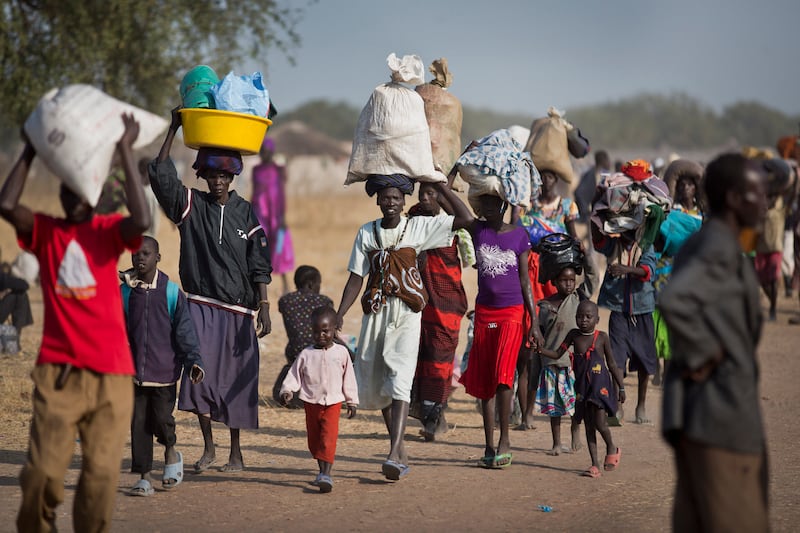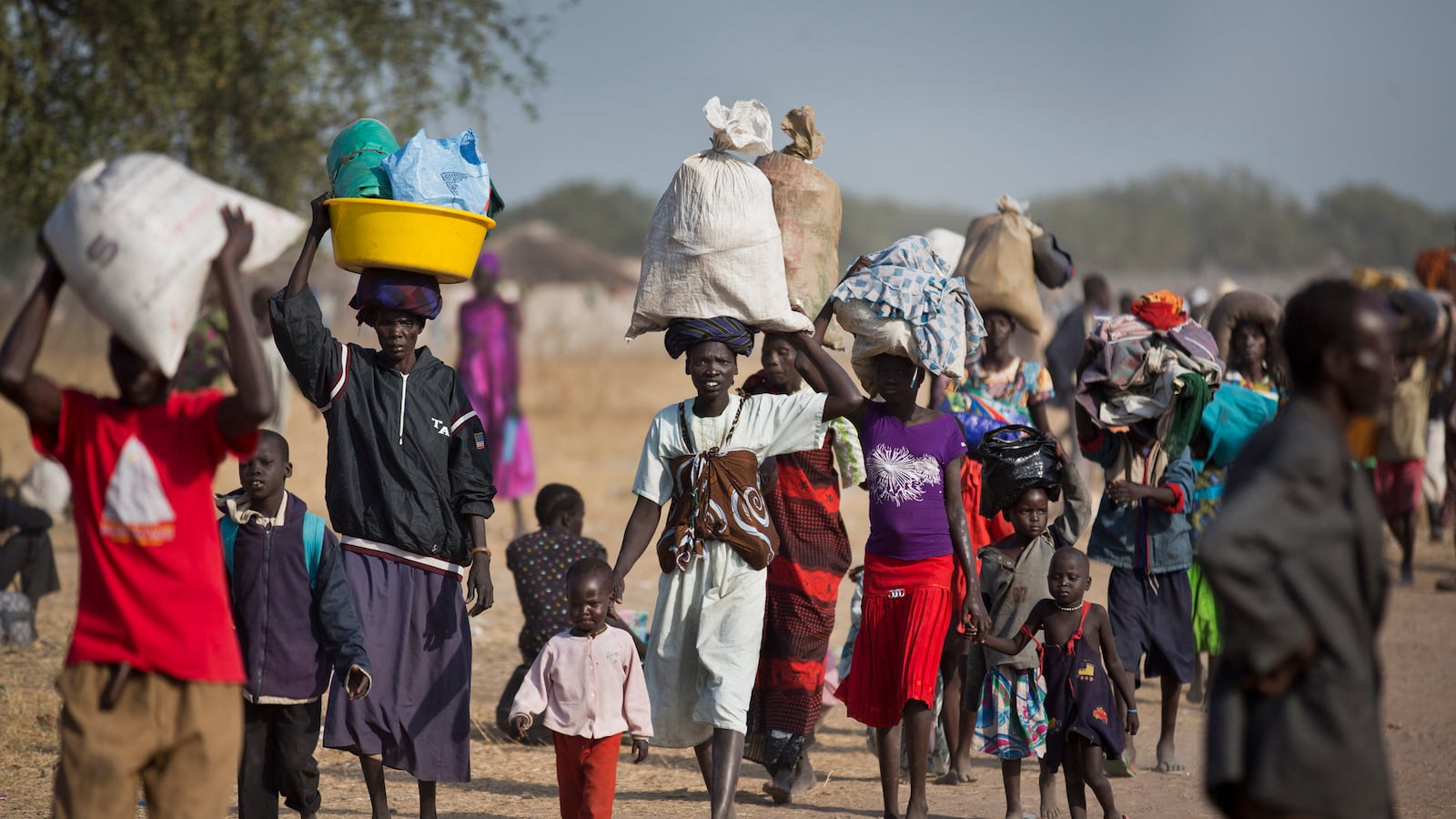The U.S. government is on high alert as the Sudanese crisis worsens by the hour. With time running out before an all-out civil war erupts, the Obama administration is short on options. Experts say it’s time to put pressure on Khartoum to rein in the rebels.

The U.S. embassy in Juba decided not to shut down Friday, but it reduced staffing for the second time amid fears that the rebel force led by ex-Vice President Riek Machar might march on Juba to contest control of the capital city from the forces of the Sudanese People’s Liberation Army, which is under the tenuous command of President Salva Kiir. If the battle of Juba begins, the embassy will be forced to close.
State Department officials monitoring the situation hour by hour said that despite skirmishes, a full-out battle had not yet begun as of Friday evening, but both forces seemed to be moving toward each other. The SPLA, made up of mainly Dinka tribesman, has reportedly begun traveling north toward the city of Bor, where Machar’s largely Nuer tribe force is garrisoned.
Secretary of State John Kerry and his staff have been working the phones—Kerry has spoken to Kiir and Machar several times—while Special Envoy Donald Booth is in Addis Ababa, Ethiopia, for negotiations being run by the Inter-Governmental Authority for Development (IGAD), although hope for a breakthrough is slim.
The U.S. government strategy is to press both sides to adopt an immediate ceasefire, to allow space for the negotiations to progress.
“Now is the time for South Sudan’s leaders to show courage and leadership, end the violence, ensure the protection and security of civilians, and reaffirm their commitment to building a more peaceful, unified, democratic state,” State Department Deputy Spokeswoman Marie Harf said Friday.
But the Obama administration is also warning Machar that the U.S. will look to punish him and his side of the conflict if he marches on Juba and takes control of the government by force.
“The United States will deny support and work to apply international pressure to any elements that use force to seize power,” National Security Staff Spokeswoman Caitlin Hayden said, in comments that could only apply to Machar.
The problem for the Obama administration as it tries to influence events in South Sudan is that the United States only has the ability to bring pressure to bear on one side of the dispute—the government that is dependent on hundreds of millions of dollars of U.S. assistance.
Experts say the only actor who may have influence over Machar is Omar al Bashir, the indicted war criminal who serves as President of Sudan and has a long history of making deals with Machar. Machar has already indicated he may work with the Khartoum regime to protect oil fields in Unity and Upper Nile states, lands Khartoum has sought to control ever since the country split in 2011.
"Given Riek Machar's long history of collaboration with the Khartoum regime, it is reasonable to be alert to the potential for reengagement over oilfield security,” said John Prendergast, founder of the Enough Project. “If Khartoum would seek to gain advantage from Juba's current weakness, it would be like throwing gasoline on a smoldering fire."
The U.S. should make it clear publicly and privately that any deal involving oil between Machar and Bashir would be a violation of South Sudan’s sovereignty and territorial integrity and would not be tolerated by the international community, said Prendergast. “Blood oil should not be the way that any South Sudan faction finances future war."
Some experts are pushing the Obama administration to confront Bashir now and use U.S. leverage on Khartoum to make sure no deal with the rebels takes place. Perhaps Khartoum could even lean on Machar to be more amenable to a diplomatic solution.
“The administration has got to figure out a way to pressure Machar. If they don’t and if this fighting continues even for a few days, we are looking at a very long and bloody civil war,” said Eric Reeves, a Sudan expert and professor at Smith College.
The U.S. could use its sanctions regime or the threat of economic or diplomatic consequences to urge Khartoum to use whatever influence or relationship it has with Machar, he said.
“We should say to Khartoum, 'you cannot make this deal. If you do, you will destroy the Comprehensive Peace Agreement and you will return to pariah status,'” said Reeves. “They need to make clear to Riek Machar that he has no escape route via Khartoum.”
A State Department official told The Daily Beast that there have been no high-level calls between U.S. officials and the leadership in Khartoum beyond the U.S. embassy’s engagement with the government.
“We do not have any indication that the Sudanese are playing a negative role in the current political crisis in South Sudan,” the State Department official said. “We continue to engage with the various members of IGAD on the important role that IGAD is playing in resolving the crisis in South Sudan.”
Reeves responded that the IGAD process has little to no chance of success and that only the U.S. has the power to pursue an alternate strategy.
“The idea that IGAD can somehow provide the muscle here diplomatic or otherwise is just nostalgia,” he said. “The U.S. government is just going through the motions. What are they doing to achieve an immediate military stand down? Every hour that goes by we are closer and closer to utter chaos.”





